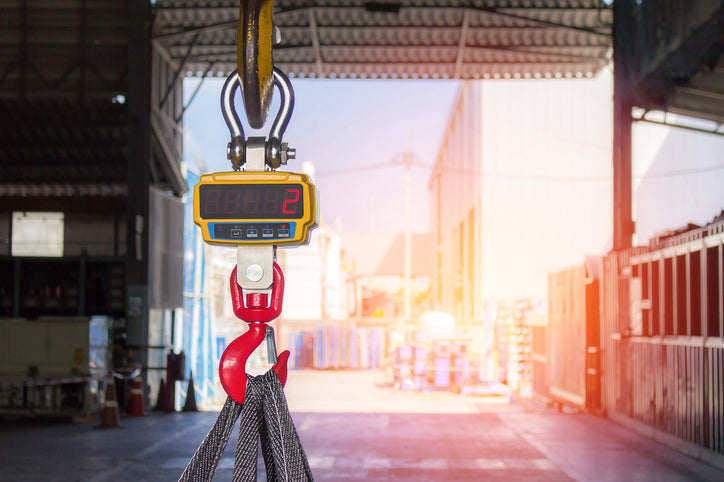Force Gauge / Dynamometer CalibrationService
-

Quick Turnaround Guaranteed
We understand that time is critical. That’s why we prioritise fast, efficient service without compromising on quality or accuracy. Whether on-site or in-house, our streamlined processes ensure minimal downtime and maximum reliability—every time.
-

On-site Calibration Service
Our expert technicians come to you, providing convenient and efficient calibration at your location. Minimise downtime and maintain compliance with our fully equipped mobile calibration units—delivering accuracy, reliability, and quick turnaround on-site.
-

NATA Accredited
Our calibration services are NATA accredited to ISO/IEC 17025, ensuring the highest standards of accuracy, reliability, and compliance. Trust in certified expertise backed by over 33 years of industry experience.
Since 1992 NATA Accredited (ISO/IEC 17025) – includes compliance with AS 1379.
-

24-Hour Breakdown Service
We offer round-the-clock support to minimise downtime and keep your operations running. Our 24-hour breakdown service ensures fast response and expert assistance whenever you need it most.
Independent Scale Service (ISS) has over 30 years of expertise in the calibration of all types of force gauges and dynamometers—both analog and digital. These instruments play a critical role in safety, quality control, and compliance, making regular calibration essential for maintaining accuracy and preventing failure.
Our industry-trained engineers in Sydney and Melbourne are equipped to handle calibration and servicing for any type of force gauge or dynamometer, whether in the lab or on-site.

Calibration and Service Capabilities
• Calibration Range: Up to 50,000 kg / 50 T / 490,000 N / 490 kN
• Serviced Types: Analog, Hydraulic, and Digital force gauges
• On-site Calibration: Available across Sydney, Melbourne, and Australia-wide
• Laboratory Calibration: Available at our facilities in Sydney and Melbourne
Our Current Clients
-
Tensile and Compression Testing
• Measurement of material strength (plastics, metals, fabrics)
• Elongation, break point, and load capacity testing -
Quality Control in Manufacturing
• Spring force and switch activation force testing
• Verifying torque and snap-fit consistency during assembly -
Peel, Push, and Pull Testing
• Adhesive strength of labels and bonded components
• Force measurement on drawers, doors, and mechanical parts -
Medical Device Testing
• Syringe plunger actuation force
• Seal strength of medical packaging -
Automotive and Aerospace Applications
• Brake pedal force measurement
• Control lever and switch testing -
Ergonomic and Safety Testing
• Human-operated tool force assessment
• Compliance with occupational safety standards (OSHA, ISO)
Compliance with International Standards
Our force gauge calibration services comply with a range of ISO standards to ensure traceability and accuracy:
|
Application Area |
Relevant ISO Standard(s) |
Purpose |
|
Force Gauge Calibration |
ISO 7500-1, ISO 376 |
Calibration & verification |
|
General Quality Systems |
ISO 9001, ISO/IEC 17025 |
Traceability & documentation |
|
Plastics Testing |
ISO 527 |
Tensile strength testing |
|
Medical Device Testing |
ISO 594, ISO 80369 |
Connector force testing |
|
Packaging Performance |
ISO 28776 |
Peel and seal strength measurements |
Faq
Introduction
Force gauges are essential instruments used across various industries to measure force, tension, compression, and torque. Their applications range from quality control in manufacturing to scientific research. Proper calibration of force gauges is vital to maintain their precision and ensure reliable results in practical scenarios.
What is Force Gauge Calibration?
Force gauge calibration is the process of verifying and adjusting the instrument to ensure its measurements align with known standards or reference values. Calibration involves comparing the readings from the force gauge to a calibrated standard, typically traceable to international or national metrology institutes. This ensures consistency and accuracy in measurements within acceptable tolerances.
Why is Calibration Important?
Accuracy and Precision
Calibration eliminates discrepancies caused by environmental factors, aging components, or mechanical wear. Accurate readings are crucial, especially in industries like aerospace, automotive, and medical device manufacturing, where small errors can have significant consequences.
Compliance with Standards
Calibration ensures compliance with industry regulations, ISO certifications, and quality assurance programs. Many industries require calibrated tools for audits and certification processes.
Preventing Downtime and Financial Loss
Uncalibrated force gauges can lead to incorrect measurements, resulting in defective products, safety risks, or costly recalls. Regular calibration minimizes such risks and improves operational efficiency.
Calibration Procedures
Pre-Calibration Checks
Before initiating calibration, inspect the force gauge for any visible damage, signs of wear, or loose components. Verify the instrument’s specifications and ensure it is suitable for the intended calibration range.
Calibration Equipment
Calibration requires a set of precise standards, such as certified weights, load cells, or calibration benches, which are traceable to recognized metrology institutes. These standards ensure the reliability of the calibration process.
Frequency of Calibration
The frequency of calibration depends on several factors:
• Usage Intensity: Frequent use of force gauges may necessitate more regular calibration.
• Environmental Conditions: Harsh environments, such as temperature extremes or humidity, can affect instrument performance.
• Manufacturer Recommendations: Follow the manufacturer’s guidelines for optimal calibration intervals.
• Industry Standards: Some industries specify calibration schedules, such as annually or semi-annually.
Challenges in Calibration
Environmental Factors
Temperature, humidity, and vibrations can impact calibration results. It is essential to conduct the process in controlled conditions to minimize these effects.
Instrument Limitations
Some force gauges may not allow adjustments, requiring replacement or specialized services if calibration reveals significant errors.
Human Error
Operator mistakes during calibration can lead to inaccurate results. Proper training and adherence to procedures are critical.
Best Practices
• Document Calibration Records: Maintain detailed records of calibration results, adjustments, and dates for audits and compliance purposes.
• Use Certified Professionals: Engage qualified personnel or accredited laboratories for calibration to ensure accuracy and reliability.
• Regular Maintenance: Perform routine inspections and servicing of force gauges to prevent malfunctions.
Conclusion
Force gauge calibration is an indispensable process that guarantees the accuracy and reliability of measurements across various industries. Regular calibration not only ensures compliance with standards but also enhances operational efficiency and product quality. By following structured procedures and best practices, organizations can mitigate risks, prevent downtime, and maintain trust in their measurement systems. Investing in proper calibration is investing in precision, safety, and success.

Get in touch now
Connect With Us
Stay connected with us for the latest updates, expert support, and tailored solutions to meet your needs.
























